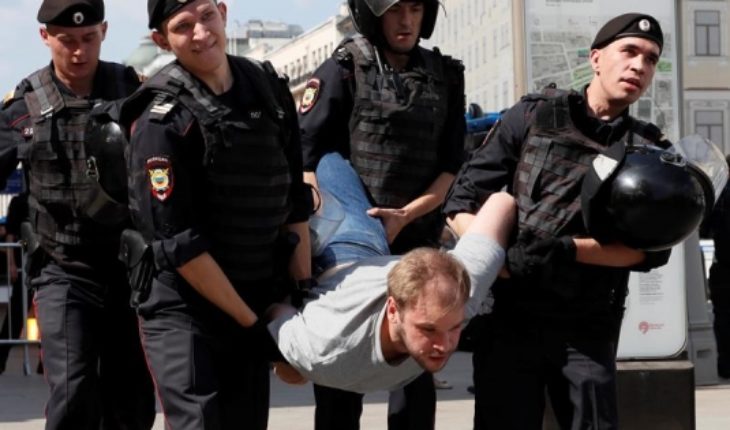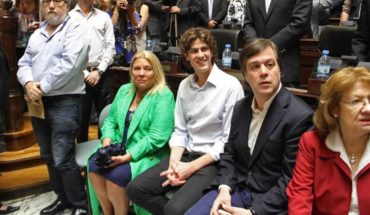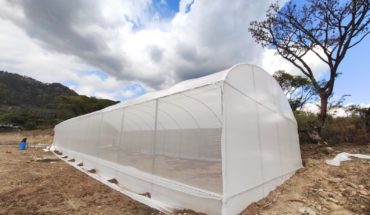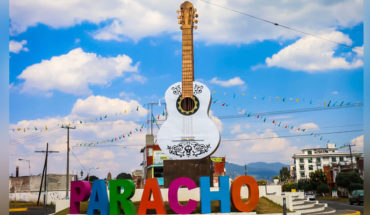“Russia will be free, this is our city!”
These were some of the proclamations that thousands of people shouted this Saturday in Moscow to demand that opposition candidates be able to participate in the upcoming local elections in the Russian capital.
The demonstration, which had not been authorized, ended with the arrest of more than 1,000 citizens after what has already been described as one of the largest crackdowns by the Russian authorities in recent years.
The protest was banned on the grounds that there were threats of violence against the Electoral Commission, the body that decided to knock out dozens of independent would-be.
Moscow’s mayor, Sergei Sobyanin, called the demonstration a “security threat” and promised to maintain public order.
What happened this Saturday?
On July 20, more than 20,000 Russians took to the streets to demand a fair election. Dozens of people were then arrested.
It is not clear how many people took part in this Saturday’s demonstration. According to police, some 3,500 people were gathered, including some 700 journalists.
The truth is that the center of the capital was besieged by hundreds of police and riot officers who tried to prevent access to the Moscow municipality.
The agents pushed back the crowd of fences surrounding the townhouse. Many of the detainees were dragged across the floor to be transferred to the police station.
Several protesters were seen bleeding, while it was reported that at least two members of the security forces would have suffered eye injuries from pepper spray.
Already before the protest, some of the leading independent applicants for election were arrested in their homes or offices so that they could not participate in the march.
How did you get into this situation?
Local elections generally attract little attention in Russia.
But this year, some of the population showed their displeasure at what they see as brazen attempts to disqualify independent politicians from attending next September’s elections.
Candidates had to collect 5,000 support signatures in order to run. It is not an easy task, as a firm “means to voluntarily provide personal information for the database of supporters of the government’s opposition,” democracy activist Vladimir Kara-Murza wrote in The Washington Post.
Many candidates managed to achieve this goal, but the Electoral Commission ruled that some signatures were ineligible, stating that they were unclear or that the addresses provided were incomplete.
Russia’s plans to punish “fake news” and send government misspoke to jail
Who is Putin’s biggest “troll” on social media (and why isn’t afraid of Russia’s president)
Opposition groups say the authorities had no reason to consider them ineligible. “We have no reason to doubt our experts,” however, electoral commission member Dmitry Reut said.
Ella Pamfilova, the head of the Electoral Commission, has in fact stated that the protests will not change her decisions. “They don’t matter, not even a little,” he said, dismissing the demonstrations and calling them “political.”
What have been the reactions?
Election candidate and one of opposition leaders Dmitry Gudkov tweeted that the local council had “died under Putin.”
“The last illusion that we would be able to legally participate in politics has disappeared,” he said.
Some newspapers also reported the detensions. The Diary Vedomosti He said authorities were using force to suppress the protest “by having failed in their attempt to do so through political means.”
The Russian government newspaper Rossiyskaya GazetaHowever, he accused the opposition of “blackmail” and of having “an unacceptable attitude towards the statutes of the law.”
European Union Foreign Affairs Spokesman Maja Kocijancic condemed the detension. He said the disproportionate use of force against peaceful protesters severely undermined the fundamental freedoms of expression, association and assembly enshrined in the Russian Constitution.
Political analyst Abbas Gallyamov told the Russian BBC service that the government’s response was designed to deter people from participating, as any massive action would suggest that the opposition had taken the government’s initiative.
Others believe, however, that demonstrations could benefit local authorities by reducing participation in the elections.
“Young opposition supporters will not go to the polls, while older generations with which the authorities have voted the same out of habit,” Denis Volkov, an expert at the independent research centre Levada Center, told THE BBC.
“The authorities will turn more towards them,” the expert concluded.
translated from Spanish: More than 1,000 detainees at a rally in Moscow following one of the authorities’ most violent repressions in recent years
July 28, 2019 |





